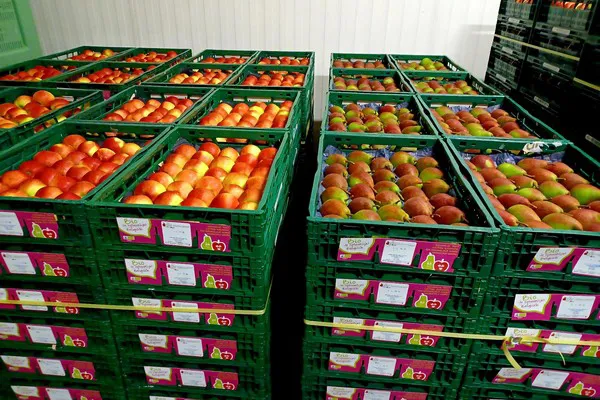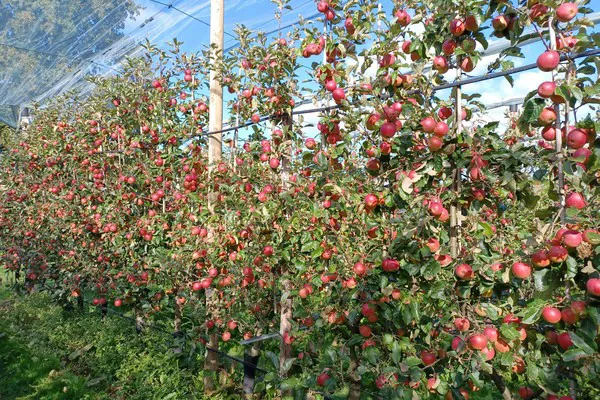While it seems the conventional Belgian apple season will end on quite a good note, organic apples are lagging. As in the conventional market, organic apples had a tough year. "The organic apple market, unfortunately, hasn't rebounded in the same way as the conventional one," begins Gerard Kenens of organic farm Verken Bio Deli-Vers.
However, the focus is gradually turning to the promising Natyra variety currently entering the market. "This usually starts after Easter, but this year, we've only just started, so the supply's still minimal. Sales are also still very calm."

Gunther De Vadder, organic specialist at the BFV, previously described this variety as the solution to the organic apple problem. "It has lower yields but sells for more," he says. "We, thus, deliberately choose to market the Natyra after the Jonagold because you get 30% higher prices for it in the full Jonagold period than for Jonagold."
"If more growers committed to planting more Natyras, you could regulate the market. There's simply too much Jonagold. Natyra's the only variety that lasts until the end of the season without losing flavor. It's hard to grow, but tastes delicious and stores well," explains Gunther.
Gerard, who markets his fruit via the BFV, has started with Natyra, too, though not yet in large volumes. "We still have plenty of Jonagold to sell, so we're focusing on that first. We were concerned for a while that, with limited consumption during the season, we wouldn't get rid of those apples. But fortunately, it seems all stocks will be gone around June. The downside is that some batches are already very rotten, but we're not left with a 'dirty' market for next season. That's good," he says.
"As for the Natyra, I think its flavor is unparalleled. They look great; the sizes are good, and we could harvest between 30 and 40 tons this year, which is excellent. There are many young trees, though, so there's not a huge supply. Also, we want to supply them for longer, so they're not gone within a few weeks. So, for now, things are going slowly, which I see working out well. Delhaize, our biggest customer, only starts in a few weeks, and then things will pick up."

Gerard does see that, like conventional top fruit, the new crop is slightly later than last year. "We're about ten days behind. Last year, we started picking Qtee pears in early August but judging by the flowering period, that should be August 15 this year. Then we'll start Conference from early September. Still, last year was a particularly early harvest, so compared to other years, the new season's off to a normal start. A season that hopefully will be somewhat better for organic top fruit. We'll have to wait and see," he concludes.
For more information:
Gerard Kenens
VerKen Bio Deli-Vers
74 Zilveren-Helmen Street
3545, Loksbergen, BE
Tel: +32 (0) 474 199 809
Gunther De Vadder
De Belgische Fruitveiling
82 Montenakenweg
3800, Sint-Truiden, BE
Tel: +32 (0) 116 93 411
Email: [email protected]
Website: www.bfv.be










